A Guide to Barcelona’s Best Bookshops
By Bartolomeo SalaThere are literally a million reasons to visit Barcelona. (Perhaps too many, as the city recently announced a crackdown on short-time AirBnb rentals as a way to curb tourists’ intake and soaring housing costs for residents). From its bars and restaurants to its beach, clubs and festivals – there are so many attractions, that it’s easy to forget there is a parallel city – local and steeped in its own complicated history – that’s hiding in plain sight. This ‘other’ Barcelona is among other things one of the literary capitals of the world. Every 23 of April, a whole chunk of the city centre closes down to traffic to celebrate Sant Jordi – a festival in honour of the city’s patron saint in which couples, as per tradition, exchange books and roses as tokens of their love. But Barcelona’s love for books goes much deeper than that.
It’s long been the editorial epicentre of most literature written both in Spanish and Catalan – something that pre-dated but definitely solidified during the Franco dictatorship, when the city, heavily repressed in the 1940s and 1950s in the wake of the Spanish Civil War, progressively established itself as a hub of cultural resistance. Spain’s most prestigious literary publisher, Anagrama Editorial, was born in 1969 specifically as a publisher of political theory and left-wing countercultural tracts. Around the same time, Barcelona also saw the birth of what came to be known as the ‘Latin American Boom’ which – under the aegis of Carmen Balcells, the legendary literary agent who first recognised the talent of the likes of García Marquez, Vargas Llosa, and Cortázar, put Latin America on the world’s literary map.
Today, this history lives on not only in the city’s myriad publishing houses but also its bookshops. When I visited this June, the neighbourhood where I was staying, El Born, was the theatre of all sorts of popular festivals – from block parties and social dinners to parades of the city’s iconic papier-mâché gegants. The barrio – thanks also to the politicisation of everyday life brought about by Catalan separatism – is really the microcosm where everything of importance happens, where people meet and relationships are forged. The same spirit is at the heart of the city’s many bookshops which are never merely stores, but rather meeting spots and social spaces, incubators of community and a certain idea of social life. Here’s a brief list of the ones you should check out, either to buy a book or a magazine or maybe just for a coffee and a vermouth.
Heavy Hitters & Hanging Out Spots
Finestres
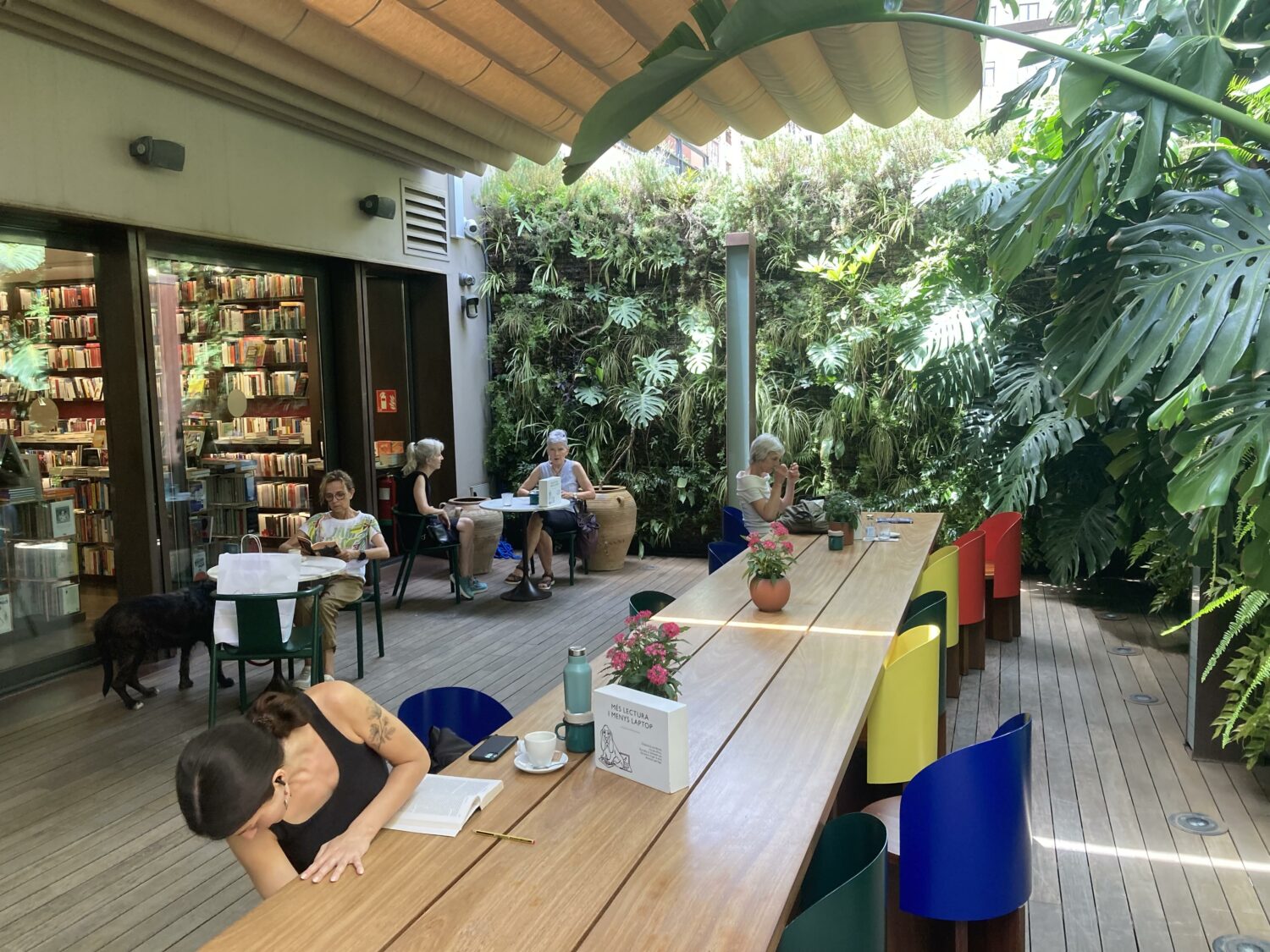
Spread across two different locations facing each other on a perpendicular stretch of Passeig de Gracia, one of Barcelona’s principal thoroughfares – Finestres is everything you want in a bookshop. Not only is the selection particularly wide-ranging; everything about the store – from the decor, to the lighting, to the tropical vertical garden and small cafe in the back – communicates a sense of elegance and painstaking curation. (The bookshop is the brainchild of a philanthropist and heir of a pharmaceutical company.)
There are plenty of English titles to browse through, both general and niche. Although the big table at the back seems perfect for a bout of productive remote working, laptops are unfortunately not allowed. But you make up for it with a beer at dusk.
C/ de la Diputació, 249-250, L’Eixample, 08007 Barcelona
La Central del Raval
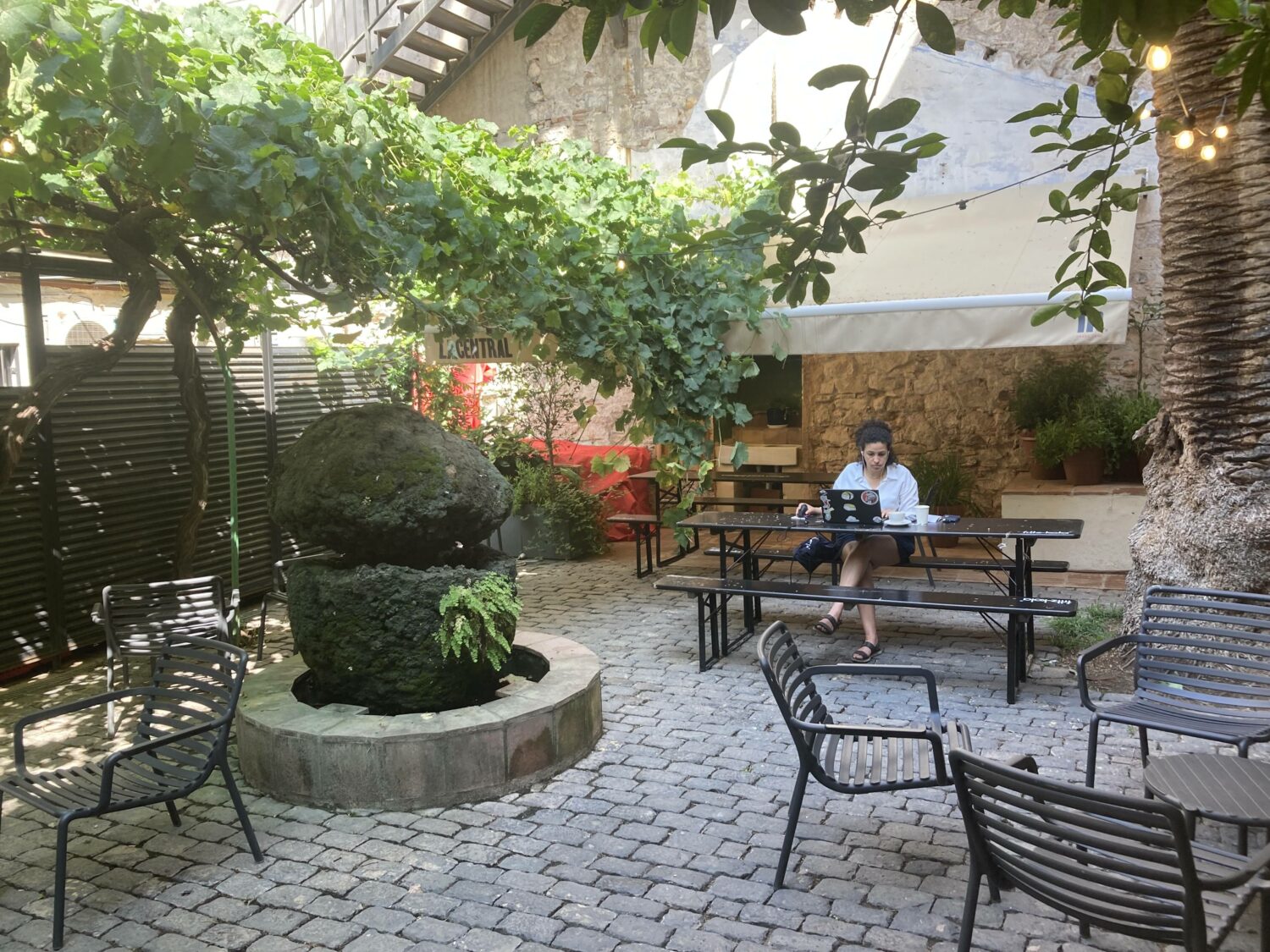
Just off La Rambla, La Central del Raval rivals Finestres as the most iconic bookshop in Barcelona. The vibe is slightly less self-serious and distinguished, but the selection is similarly expansive, with lots of English art books, fiction, and non-fiction to choose from. However, what will make you come back again and again is the lush and peaceful backyard garden and the adjacent café-bar serving a wide selection of tapas, pastries, wine, beer, and coffee depending on the time of the day.
As an avid bibliophile, I make sure to pay a small visit every time I am in Barcelona, but even if you are not into books at all, it’s absolutely worth going just to have a quiet moment savouring a vermouth in the shade.
Carrer d’Elisabets, 6, Ciutat Vella, 08001 Barcelona
Laie
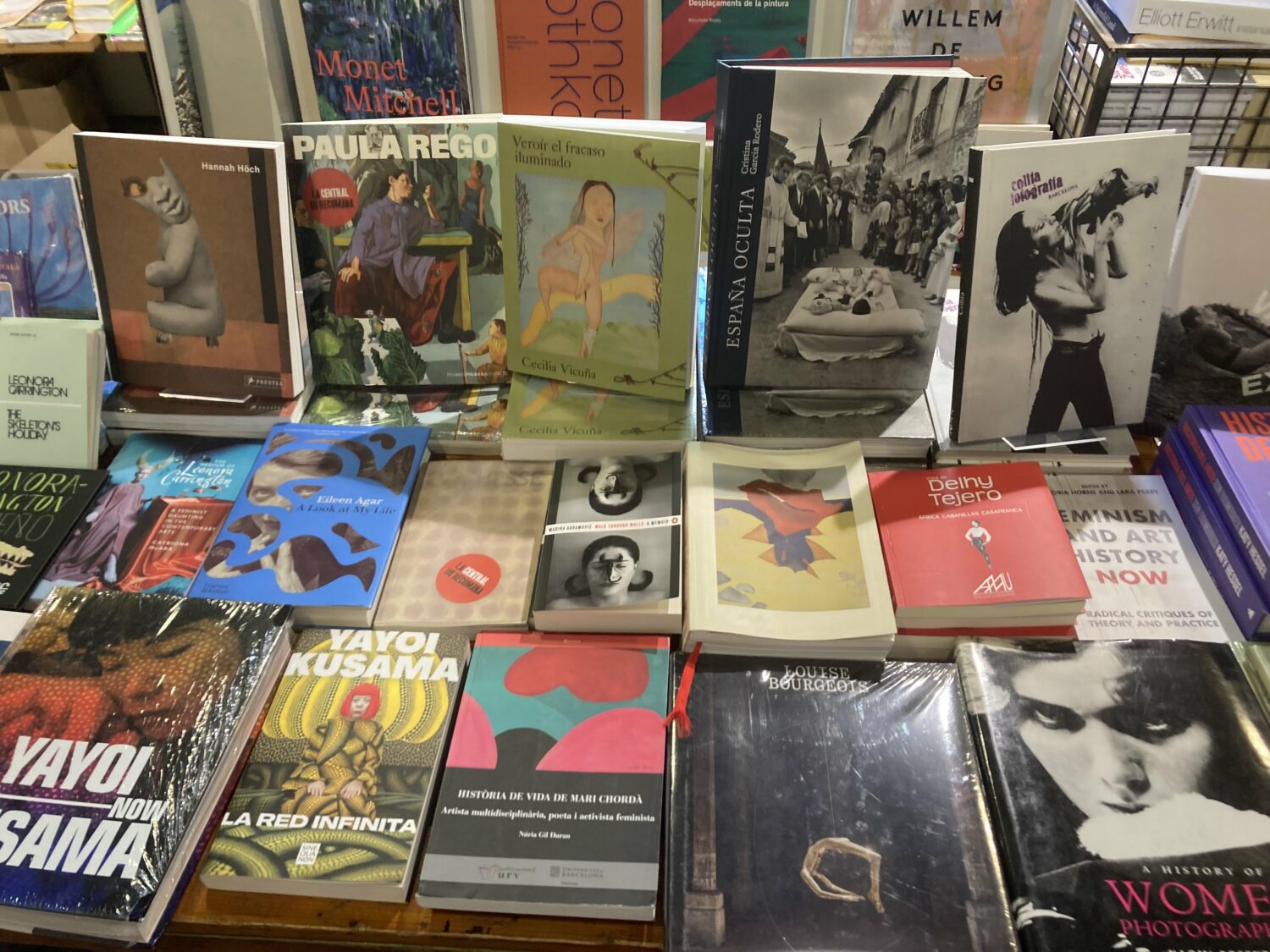
Perhaps not as eye-catching as the two aforementioned, Laie is nevertheless solid and comes with a cafe-restaurant on the second floor, a small terrace and, a space where you can open your laptop and work remotely.
If that isn’t your thing, but instead you love art books and magazines, make sure to visit the location inside CCCB, Barcelona’s Contemporary Culture Centre, metres away from the MACBA. There is just something about the luminous, predominantly white interior that feels particularly soothing, and it’s possible to find all kinds of catalogues, as well as fiction and non-fiction in English. Although they sell some other stuff, too, this is a wonderfully curated bookstore, not a souvenir shop.
C/ de Pau Claris, 85, L’Eixample, 08010 Barcelona
C/ de Montalegre, 5, Ciutat Vella, 08001 Barcelona
Unmissable Hidden Gems
Calders
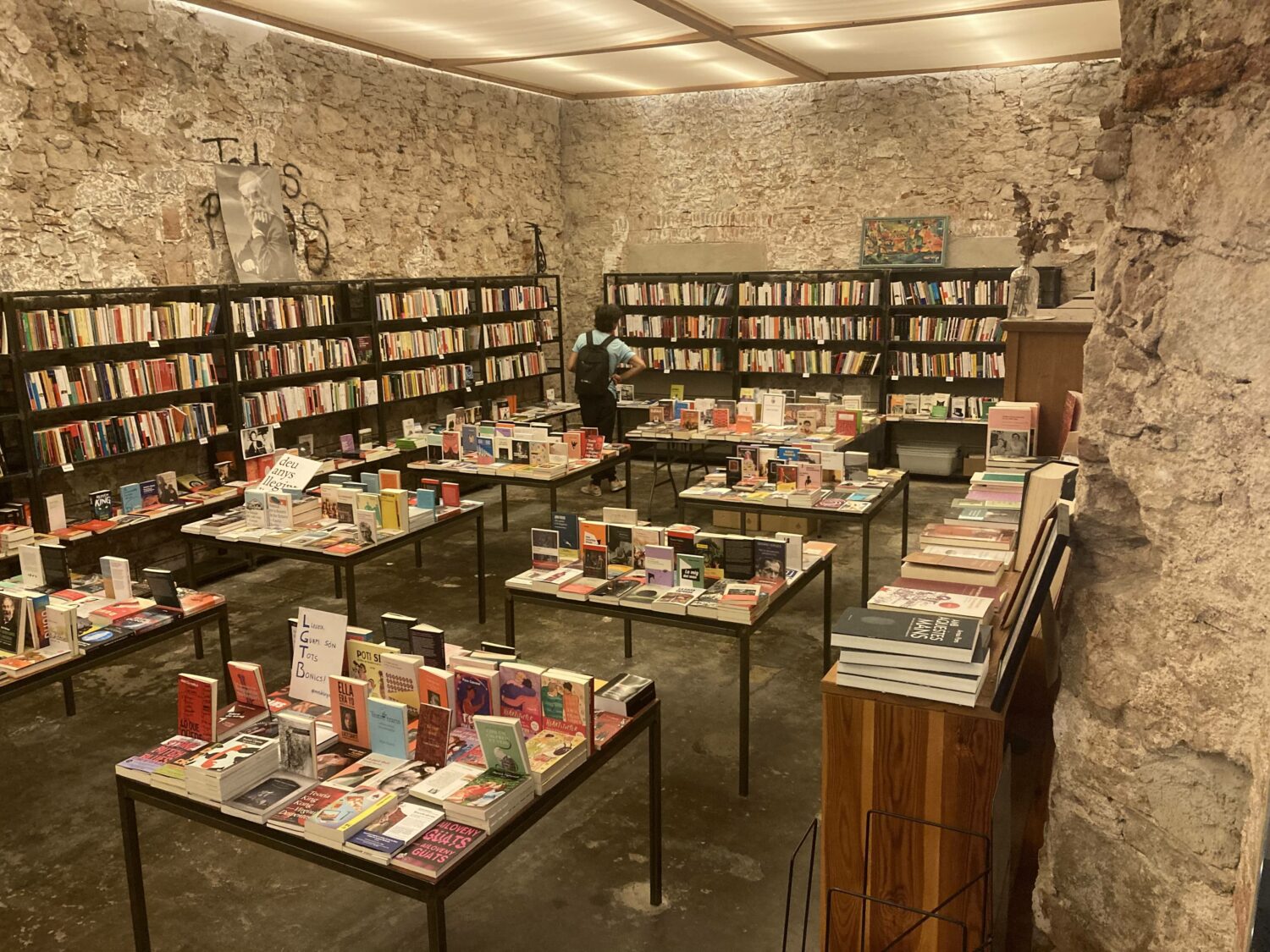
Found at the end of a small square in the Sant Antoni neighbourhood, Calders is possibly Barcelona’s coolest-looking bookshop. The entrance – with a little table and a few chairs outside – is charming enough, but it’s the second room to the right that steals the show. Accessible through two big arches, it preserves the old brick walls (my guess is that the building used to be a garage) which act as the perfect foil to the shelves and low tables neatly packed with books.
Purely aesthetic considerations aside, the selection of titles is also flawless. Unfortunately, there’s very little in English, only Spanish and Catalan, but you can always have a snoop around and then decamp to the lovely bar at the corner.
Passatge de Pere Calders, 9, L’Eixample, 08015 Barcelona
crisi
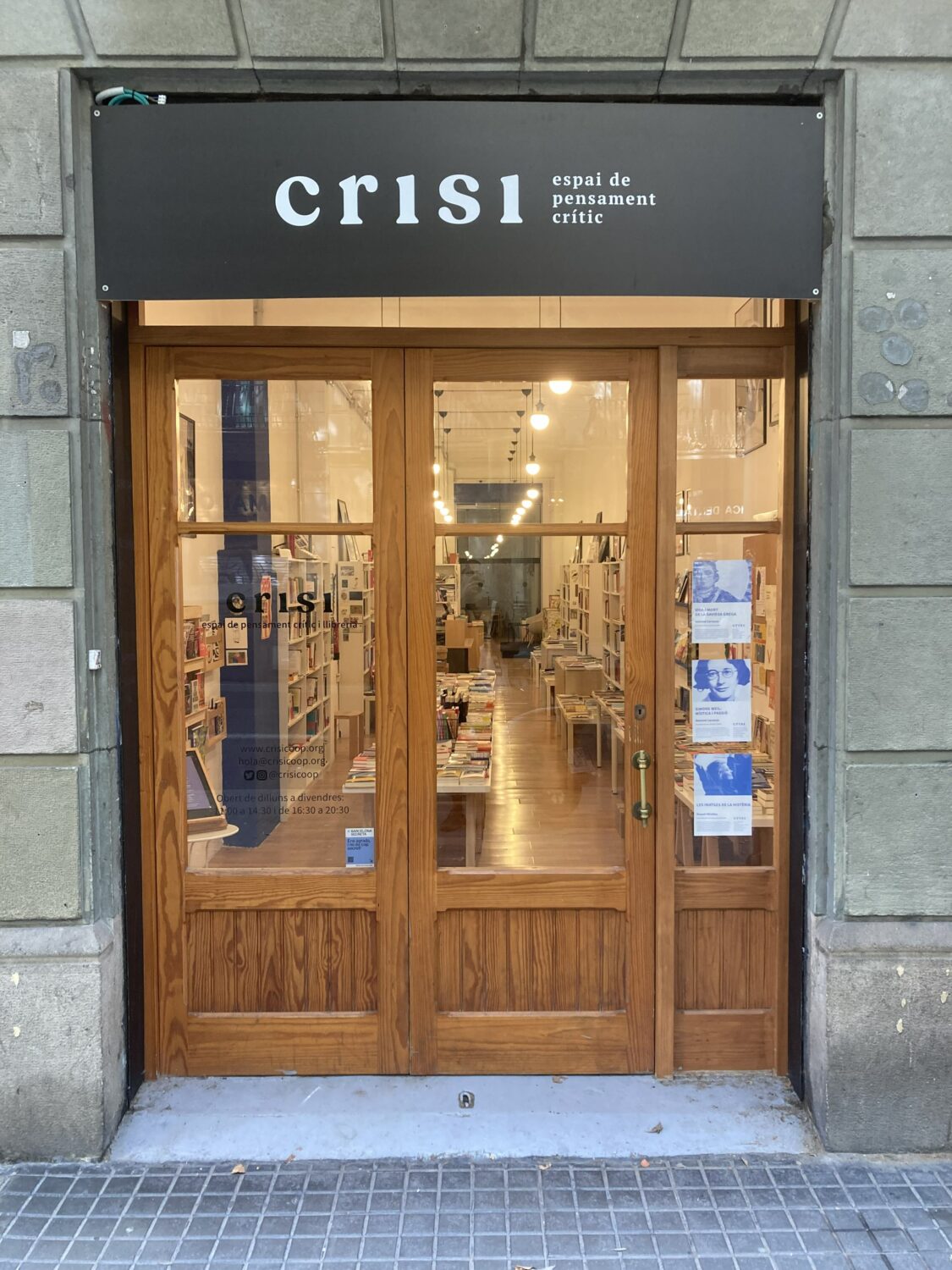
I am always fascinated by examples of things that try to do things differently and enlarge the realm of the possible. Crisi might be a great case in point: a cooperative in which all participants are paid and share revenues equally; the bookshop is itself a way to finance a communal space of research comprised of workshops, talks, and free events.
During my time in Barcelona, I didn’t manage to participate in any of the activities that the bookshop puts up on a weekly basis, but if you are at all interested in art, philosophy, and feminism and have the slightest inkling of Spanish I suggest you pay a visit.
C. de Floridablanca, 90, L’Eixample, 08015 Barcelona, Spain
Specialist Bookshops / Bonus Tracks
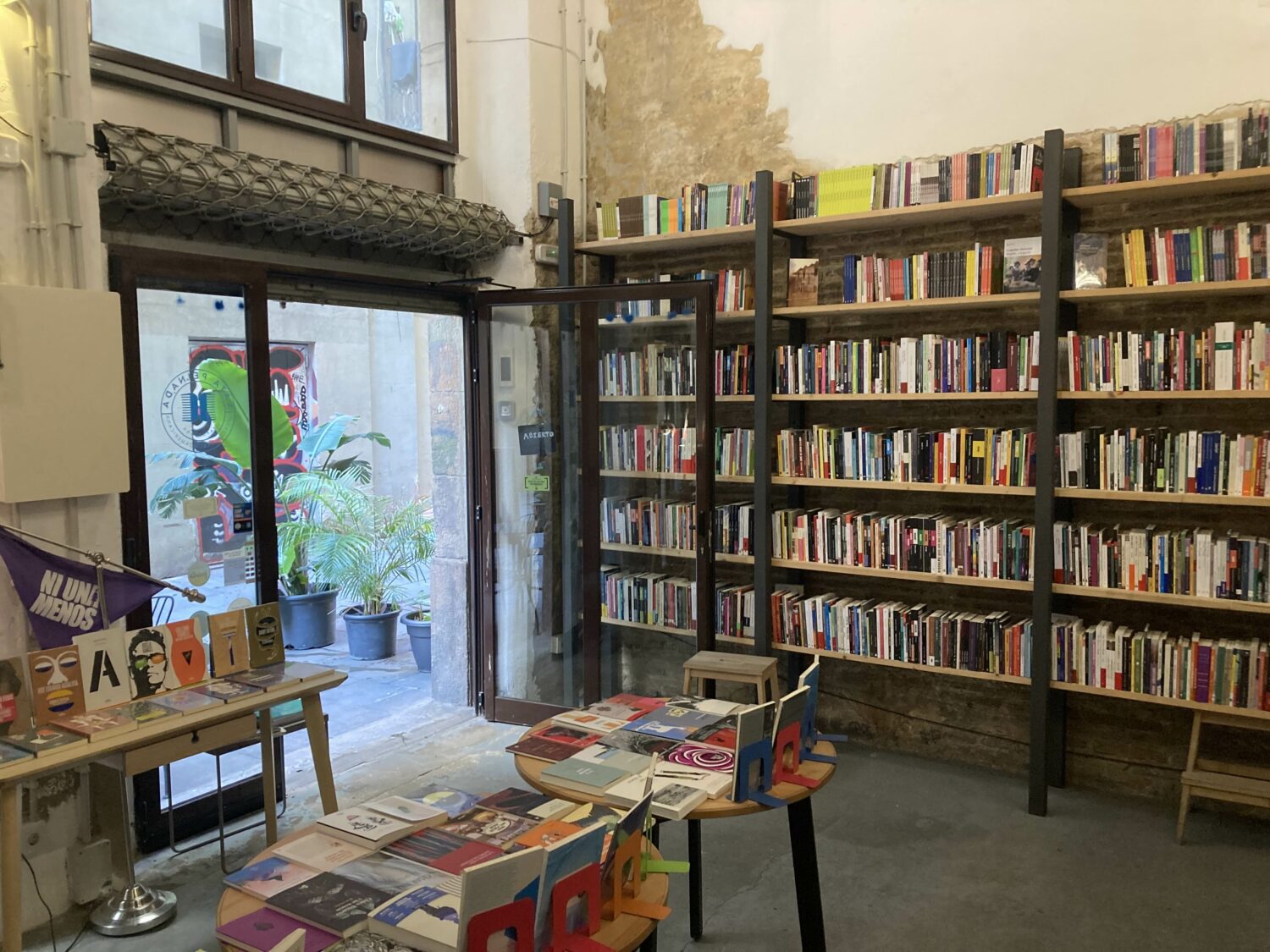
I kept this list purposefully short, because I realise how tantalising it is to enter a bookshop, see all the beautiful covers, and not be able to read anything (probably the biggest reason why I travel to the same places over and over). However, if you couldn’t care less (or, alternatively, you read Spanish and/or Catalan), I suggest you at least check out Ona (C/ de Pau Claris, 94), Lata Peinada (Carrer de la Verge, 10) and La Memoria (Plaça de la Vila de Gràcia, 19).
Ona is possibly the biggest, exclusively Catalan bookshop in Barcelona (and therefore the world). If you don’t know anything about Catalunya, this might strike you as particularly odd, a form of self-barricading. If you know anything about Catalan history and identity, and how the language was repressed during the Franco years, you can at least sympathise with the protectionist sentiment and reasoning behind it.
Lata Peinada similarly, just of Plaça de la Universitat, is a small bookshop specialised in Latin American literature, a place where I’ve bought many of my most treasured old editions of Latin American classics, while La Memoria, right in the centre of elegant, affluent Gràcia, focuses primarily on history (got some nice monographs on the Spanish civil war in Barcelona).
Bartolomeo Sala is a writer and reader based in London. His writing has appeared in Frieze, Vittles, and The Brooklyn Rail. Header image: Finestres’s interior. All photography by Bartolomeo Sala.